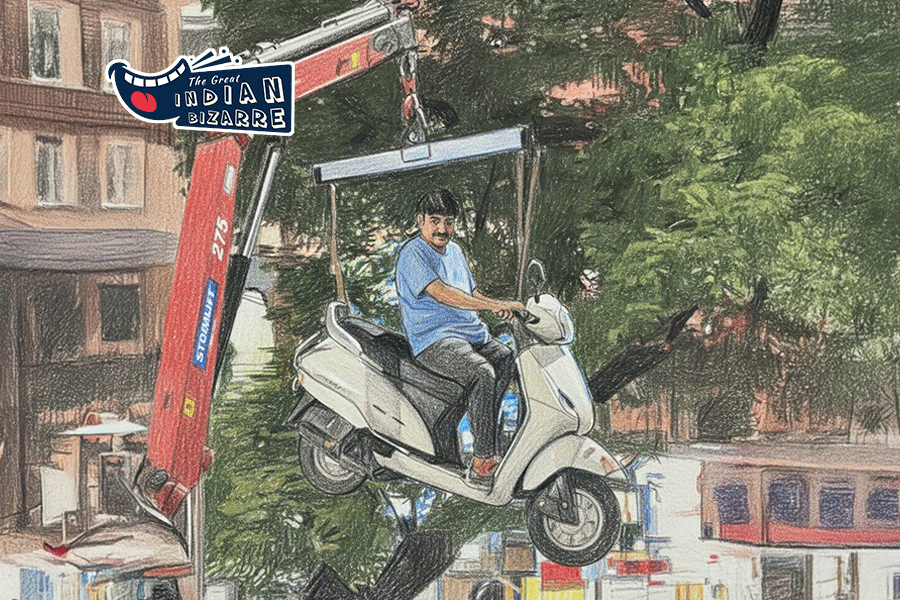 |
| I.A. Rehman |
Calcutta, Jan. 7: India, Pakistan and Bangladesh should have an agreement or a wider protocol involving the Saarc countries to ensure speedy justice to their citizens rotting in jails and expedite their release, the director of the Pakistan Human Rights Commission said today.
“Many citizens of the three countries land up in each other’s jails and rot for decades even after serving their sentence without the knowledge of their families. It’s a gross violation of human rights,” said I.A. Rehman, the rights panel director and a veteran journalist, touching upon an issue that mostly stays under the radar.
Rehman illustrated the depth of the problem with a searing example. He said prison officials there once showed him jars full of ashes of Indian prisoners who breathed their last away from home. The fate of many Pakistani and Bangladeshi inmates in Indian jails is also the same, he added.
Rehman was speaking on the sidelines of a conference of the International Association for the Study of Forced Migration. The conference is hosted by the Calcutta Research Group, a city-based forum that focuses on refugee studies.
“The governments in the subcontinent must have bilateral or Saarc-level protocols to ensure that families of the arrested persons are informed immediately after their detention. A mutually effective mechanism must be in place to expedite justice for them and send them back to their respective countries after they have served their sentences,” he added.
India and Pakistan have formed a joint judicial committee on prisoners, involving four retired judges from each side with access to jails across the borders. But Rehman said complaints were abundant that authorities in both countries had shifted cross-border prisoners to other jails before the committee’s visits.
“Added to the bureaucracy and tardy judicial system that the subcontinent inherited from the Raj, the lack of political will to end the intra-country hostilities and an element of sadism in making the common people of neighbouring nations suffer have been prolonging the nightmare of thousands of families across the borders,” Rehman said.
Both Rehman and Anisuzzaman, the chairman of the Bangla Academy in Dhaka and former professor emeritus of Dhaka University, pointed out that the spurt in terrorist attacks, mutual security threats and suspicions notwithstanding, most foreign inmates of subcontinental jails are fishermen and villagers, including many women and children.
Most of them either strayed into the neighbouring country’s territory unwittingly or entered illegally and overstayed their visas, mainly for economic reasons.
Former external affairs minister S.M. Krishna had said in August that of the around 800 Indian prisoners lodged in Pakistani jails, as many as 582 were fishermen. On the other hand, Pakistan’s minister of state for foreign affairs M.A. Khan had told the National Assembly in July that 428 Pakistanis, including 85 fishermen, had been lodged in Indian jails.
Calcutta High Court had recently pulled up the state and the central government for not taking the initiative to free and repatriate around 350 foreign inmates, including 221 Bangladeshis, even after they have served their sentence.
However, the actual numbers of such inmates are much larger as many have been detained illegally or have disappeared while some have lost sanity after being locked up in dungeons for decades, both the civil society leaders pointed out.
While the political one-upmanship over the release of high-profile inmates like Sarabjit Singh and Md. Khalid Chisti makes the headlines, the plight of thousand others are ignored, Rehman felt.
“People accused of being smugglers are killed or beaten up on the Indo-Bangla border. But smugglers too have a right to life. They can be arrested and prosecuted. Women, both in jails and distant homes, are the worst sufferers,” Anisuzzaman said.
CRG director Ranabir Samaddar pointed out that unlike the Indo-Bangla border system, the Mizo accord and the recent political settlements in Nagaland and Manipur bordering Myanmar have recognised the traditional cross-border trade and people’s movements.
“In view of the increasingly globalised economy, our governments should agree on controlled entry of citizens of neighbouring countries and promote cross-border traditional economic and cultural ties,” Rehman said.
With Rehman’s roots in Haryana and Anisuzzaman’s in Calcutta before Partition, both took exceptions to the doctored versions of sub-continental history in school text books, which some regimes in Pakistan and Bangladesh promoted to sell a myopic and selective understanding of the nation-states to younger generations.
Samaddar said moves in India to rewrite history during the NDA government also posed similar dangers.











